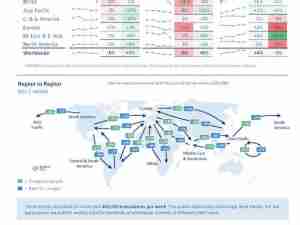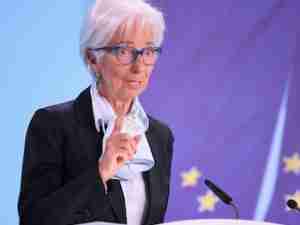Airbus and
Boeing agreed to triple purchases of parts and materials from Abu Dhabi in deals worth over $5 billion, as Gulf states seek a reciprocal boost to their economies from huge orders they have placed with the planemakers.
A shift of emphasis on day two of the Dubai Airshow accelerated the growth in aircraft parts manufacturing in countries where demand is strongest and will spread part of the profits generated by $150 billion of brand-new plane orders.
"We have always had industrial partnerships in countries where we have done
business," said Boeing's Chairman and Chief Executive Jim McNerney.
"It is not just a
marketing quid-pro-quo; it benefits us and so reduces our risk to have more partnerships around the world," he told reporters at the Middle East trade gathering.
Confirming a Reuters report, Airbus agreed a new deal with Abu Dhabi's state investment fund Mubadala, whose aerospace unit already builds lightweight parts for Airbus and
Boeing.
Separately, Boeing said it had signed a deal with Mubadala for Abu Dhabi to supply as much as $2.5 billion in advanced composites and machine
metals to the U.S. planemaker.
The deals will benefit the mainly female workforce of a $250 million plant in the remote oasis town of Al-Ain, which competes with Britain's GKN (
GKN.L) and Spirit Aerosystems (
SPR.N) of the United States to make composite and metal parts.
Competition also from
South Korea and
Japan is intense but Mubadala Aerospace, owned by Abu Dhabi's sovereign investment fund, aims for a top-three spot in the industry by 2020.
"These deals make us three times bigger than what we were yesterday, which is important to us because it brings us closer to being one of the top three in the market," said Badr Al-Olama, chief executive of Mubadala'a Strata manufacturing unit.
Boeing said it had also reached an agreement with Abu Dhabi's Tawazun Precision Industries, a state-owned manufacturing investment company, to set up a facility in the United Arab Emirates for producing composite materials.
The facility will be up and running by 2016 and will produce parts for other manufacturers as well as Boeing, the two parties said, without disclosing financial details.
The record opening-day orders included over 140 jets from Boeing and its European rival Airbus for Abu Dhabi's Etihad Airways, and an even larger number for Dubai's Emirates.
The buying spree underscores a shift in power in the aviation industry as oil-rich, fast-growing economies of the Gulf take advantage of their strategic position between East and West to draw more travelers from hubs in Europe and Asia.
While the orders drove up share prices in Boeing and Airbus parent EADS, the world's dominant civil aircraft manufacturers, workers at their traditional aerospace factories are worried they will suffer from the growing globalization of the aircraft supply chain, in which Gulf firms are playing a part.
Machinists in Washington state last week rejected a new labor contract that would keep production of a new model of 777, launched at the Dubai air show, in Boeing's traditional base in return for a restructuring of pensions and benefits.
McNerney said Boeing had been open with workers about the need for global partnerships. The company has acknowledged however that it overdid outsourcing of its 787 Dreamliner.
Implicit Link
The use of carbon composites in aerospace, which make jets lighter and cheaper to fly, is expected to double in the next decade.
Abu Dhabi, the UAE's main oil and gas exporting emirate, aims to boost the non-oil
economy to 56 percent of GDP by 2020 and 64 percent in 2030, up from 41 percent in 2005-07.
People familiar with the aircraft purchases and industrial deals said they are implicitly linked.
"It is important for us to build with local hands. You saw yesterday's announcements and this has created a heritage which is good for our industry," said Tawazun chief executive Saif Al Hajeri.
Elsewhere in the Gulf, few have been as aggressive about promoting aerospace manufacturing as Abu Dhabi, but Qatar has tilted towards a "knowledge-based"
economy and co-operates in areas such as data analytics, an industry official said.
The hub cities in the Gulf - Dubai, Abu Dhabi and Doha - are spending billions on infrastructure in a bid to attract travelers and diversify their oil-based revenues, at a time when faltering Western economies are struggling to invest.
The Dubai Airshow four years ago promoted similarly high expectations only to be followed days later by the first sparks of Dubai's financial crisis, from which it has rebounded.
McNerney dismissed concerns that the latest spate of orders indicated that the region was overreaching itself economically.
"This region is for real," he told reporters.
Contrasting with Sunday's opening slew of orders, the air show meanwhile saw the birth of a new Libyan airline, Libyan Wings, with a provisional order for seven Airbus jets.
Its founders say they are not deterred by recent unrest in Tripoli, the worst since the fall of Muammar Gaddafi, and are banking on reconstruction of the oil sector to boost demand. (Reuters)

